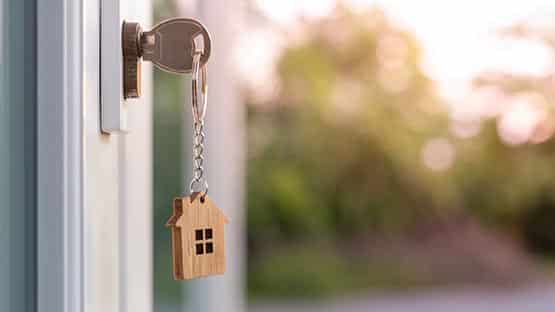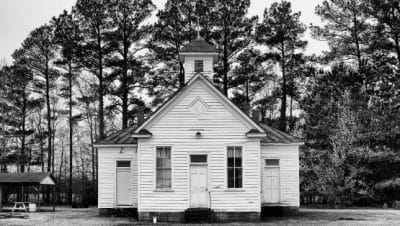
The Shenandoah LGBTQ Center’s outreach extends beyond the lesbian, gay, bisexual, trans and queer population with the center hosting health clinics and doing its part to help youth experiencing homelessness.
Hope House of the Shenandoah, an arm of the center, offers rapid rehousing for young adults, ages 18-24, who are at risk for or are experiencing homelessness, and while the program gives priority to LGBTQ youth, it is open to anyone meeting the age and location criteria.
MeShawn Macklin is the housing focused case manager at the Staunton-based Shenandoah LGBTQ Center, and they understand the issues facing unhoused youth. Macklin, now 27, was once homeless.
“It could definitely be a desperate thing sometimes,” Macklin said. “I’ve experienced homelessness myself, and it’s extremely difficult to ask for help when you’re in such a vulnerable state.”
Macklin believes that the mindset of young adults can change with reframing and offering hope.
“This is your situation right now,” Macklin said they tell clients. “We’re going to do everything we can to help you get where you need to be and where you want to be.”
Macklin said the program is not a one-size-fits-all approach; all of the clients are different. The goal at Hope House is to simply meet the young adults where they are, and get them to the point where they feel like they can support themselves.
“My approach to case management is to just be myself,” Macklin said, “to kind of meet them where they are. I don’t want to come in and be an authoritarian figure, and just tell them, like, you need to do X, Y and Z.
“I understand what it’s like to be this age, and not to like being told what to do. They’re grown adults. You have to let them make decisions for themselves, learn things for themselves, and just kind of be a guiding force to them. I just like to be very personable with them, meet them where they are and kind of go from there.”
The rapid rehousing program aims to get youth on their feet by providing financial assistance for up to one year for deposits, rent, utilities, medical bills and more. The organization will also help its participants with things like getting identification documents and birth certificates, if needed.
The program is open to people in the cities of Staunton, Waynesboro, Lexington, Buena Vista and Harrisonburg and Augusta, Rockbridge, Bath, Highland and Rockingham counties.
“The goal is to help them become self-sufficient, self-stabilizing, so they can provide for themselves,” Macklin said.
There is no requirement that program participants are employed when they apply for assistance.
The organization provides wraparound case management for youth in the program – things like budgeting and how to take care of a house or apartment.
The program is client-choice, meaning once someone is approved for the program, and is assigned a case manager, they may choose where they want to live – a house or an apartment – and how many bedrooms they want. The case manager might offer logistical guidance, i.e. if they don’t have transportation, they might want to select a place to live that is on a bus line. There are also guidelines as far as the maximum amount that can be paid based on the number of bedrooms.
If a client is employed, Hope House calculates 30 percent of their income to use toward rent.
Rising rental costs and the current job market are a challenge for clients of Macklin.
“Rents are extremely expensive right now,” they said. “But also the job market is not where it needs to be … it’s been extremely difficult to find local landlords with units that are decently priced.”
Without having to worry about having a roof over their head, clients may focus on getting a job and getting other support like mental health care, when needed.
Referrals for the program primarily come from the Valley Homeless Connection through Valley Community Services Board.
Like other programs offering rental assistance or temporary shelter, the waiting list at Hope House of the Shenandoah is growing. The agency faces challenges, including the need to hire another case manager, that limits its ability to help more people.
The program currently has six people enrolled in the program working with Macklin. There are more than 30 people on the waiting list.
“The pressure is definitely there … not only from the community but from the partners we work with. But we can also only do what we can do with what we have,” Macklin said. “It’s extremely difficult sometimes, because the need is there, and you see the need.”
Macklin said that once another case manager is hired, they should be able to start working through the waiting list and determining eligibility for people that remain unhoused. LGBTQ young adults will be pushed to the top for consideration.
“With our target population of LGBTQ young adults, there’s a narrative that these folks are being kicked out from their parents’ house because of their identities or because of their sexuality … that’s not typically the case,” Macklin said.
Most of the time, for whatever the reason, the individual may be couch-surfing with friends, not necessarily living outside.
“It’s not like they want to be in these situations, but they just need support,” Macklin said. “They don’t know about getting an apartment and what that means and upkeep on it. So our program, the case management part, really helps them to learn those skills … to start to live a life that is going to be sustainable for them.”
Macklin said their job is challenging but also rewarding. They have several clients who are close to exiting the program.
“It’s been challenging working with them, but it’s also inspiring to see where they were initially and where they are now,” Macklin said. “It gives me hope that we can continue doing this for folks. The clients have grown a lot in a year.”
Connect with Hope House of the Shenandoah
- Website
- Phone: (540) 245-3321
- Email: [email protected]
- Apply for assistance online
How the community can pitch in
- Used furniture: Hope House of the Shenandoah accepts donations of used furniture to provide for clients. As a small organization with limited storage, however, those with potential donations are asked to call the center to inquire about needs at [email protected]
- Volunteer on moving days: Hope House of the Shenandoah is also working to grow its volunteer base primarily to help move clients into their house or apartment.
Youth Action Board seeking members
The Hope House is offering paid positions on its Youth Action Board. Board members will evaluate the current rapid rehousing program and make informed proposals for suggested improvements.
Applicants should be between the ages of 18-26 and reside in Augusta bath, Highland, Rockbridge or Rockingham counties.
Young adults with experience being at risk of or unhoused or a member of the BIPOC or LGBTQ+ community are encouraged to apply. Previous participants in the Hope House program are also eligible.










